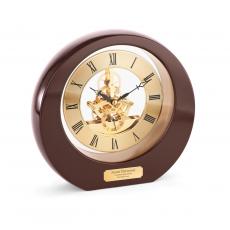Cultural Sensitivity in Corporate Gifting
In today's modern work culture, recognizing and appreciating employees goes beyond just awards. It involves understanding and respecting your team members' diverse backgrounds and cultures. Cultural sensitivity to corporate gifts is a vital aspect of this process. This article delves into cultural sensitivity in corporate gifting, providing insights into diverse gift options, avoiding religious symbols, and adhering to international norms.
Diverse Gift Options
When it comes to corporate gifting, one size does not fit all. Employees have different preferences and backgrounds, and it's crucial to offer various gift options to ensure inclusivity. Here are some diverse gift choices to consider:
Customized Gift Baskets:
Create gift baskets that cater to various tastes and dietary restrictions. Include gourmet snacks, chocolates, and specialty items from different cultures.
Personalized Desk Accessories:
Desk accessories such as engraved nameplates or stylish desk organizers can be thoughtful gifts that reflect professionalism.
Experiential Gifts:
Consider providing experiences like spa vouchers, cooking classes, or tickets to cultural events. These gifts allow employees to create lasting memories.
Donations to Charities:
Give employees the option to choose a charity for a donation on their behalf. This not only shows cultural sensitivity but also supports meaningful causes.
Language Learning Subscriptions:
Offer language learning subscriptions to employees interested in exploring new languages and cultures.
Cultural Workshops:
Organize workshops or sessions that promote cultural awareness and diversity within the workplace.
By offering a diverse range of gift options, you demonstrate that you value the uniqueness of each employee's background and preferences. This fosters a sense of inclusion and ensures that your gifts are culturally sensitive.
Avoiding Religious Symbols
Religion is a deeply personal aspect of an individual's identity. Corporate gifting should avoid symbols or items associated with a particular religion, which may unintentionally offend employees. Here are some tips for preventing religious symbols:
Research and Consult:
Before selecting gifts, research your employees' cultural and religious backgrounds. Consult with colleagues or HR if needed to ensure sensitivity.
Choose Neutral Symbols:
Opt for symbols universally recognized as non-religious, such as flowers, stars, or geometric patterns.
Customization:
If customization is a part of your gifting strategy, ensure that any engravings or personalizations are free from religious connotations.
Consider Dietary Restrictions: Be mindful of dietary restrictions associated with particular religions, such as halal or kosher nutritional requirements, when selecting food items.
Respect Requests: If an employee has specific requests or preferences due to their religious beliefs, make every effort to accommodate them.
Cultural sensitivity in corporate gifting extends to respecting employees' religious backgrounds. By avoiding religious symbols and considering employees' beliefs, you create a more inclusive and respectful work environment.
International Gifting Norms
Corporate gifting doesn't stop at your local office; it often extends to international clients, partners, and employees. To navigate the complex world of international gifting, it's essential to be aware of cultural norms and practices. Here's how you can ensure your corporate gifting is culturally sensitive on a global scale:
Research Local Customs:
Before sending gifts to international recipients, research the cultural norms and customs of the recipient's country. Different countries may have specific traditions and expectations regarding gifts.
Consult Local Contacts:
If possible, consult with local contacts or partners to get insights into the most appropriate gifts for the region.
Avoid Taboos:
Be aware of cultural taboos and sensitive subjects that should be avoided in your gift choices or accompanying messages.
Packaging Matters:
Consider the way gifts are packaged. In some cultures, the presentation of the gift is as important as the gift itself.
Timing:
Pay attention to the timing of your gifts. Different cultures may have unique occasions and holidays when gift-giving is more customary.
Corporate Policies:
Ensure your corporate gifting policies align with international compliance and regulations, including anti-bribery laws.
Cultural sensitivity in international corporate gifting helps you build stronger relationships and avoids unintentional cultural misunderstandings. Adhering to international gifting norms demonstrates respect for the diverse cultures you engage with.
Persona Targeting
Understanding your target audience is crucial for corporate gifting with cultural sensitivity. To create meaningful and impactful gifts, you need to consider the preferences and needs of specific personas. Let's take a closer look at the personas you should be targeting:
Business Owners:
Business owners are often the decision-makers regarding corporate gifting. They appreciate gifts that reflect positively on their company and strengthen relationships with employees and clients. For this persona, emphasize the professionalism and thoughtfulness of your gift choices.
HR Departments:
HR professionals are significant in employee engagement and retention. Gifts that promote a positive work culture and inclusivity are essential. Consider gifting options that align with HR's goals of creating a diverse and welcoming workplace.
Event Coordinators:
Event coordinators may be responsible for organizing corporate events and gatherings where gifting is a common practice. They value gifts that enhance the overall experience and create a positive impression. Provide them with gift options that align with event themes and objectives.
Culture of Corporate Gifting
In corporate gifting, cultural sensitivity is not just a nicety; it's an absolute necessity. Recognizing and appreciating employees and clients from diverse backgrounds reflects a modern and inclusive workplace culture. This article has explored cultural sensitivity in corporate gifting, from offering various gift options to avoiding religious symbols and adhering to international gifting norms.
We've delved into the importance of understanding the personas you target with your gifts, including business owners, HR departments, and event coordinators, and how your brand messaging can play a pivotal role in conveying the significance of cultural sensitivity. Your brand is not just about products; it's about values, and recognizing and appreciating employees based on cultural sensitivity is a fundamental value.
As you incorporate cultural sensitivity into your corporate gifting strategy, remember that it's a path toward building stronger relationships, fostering inclusivity, and creating a positive work environment. By following the guidelines outlined in this article, you can ensure that your corporate gifts are not mere tokens but meaningful expressions of appreciation that resonate with your brand's messaging and contribute to a more harmonious workplace.
Ultimately, success in corporate gifting isn't just about the gifts themselves; it's about their lasting impact on your employees and clients. It's about recognizing and appreciating the diversity and uniqueness of each individual, which ultimately leads to a more engaged and productive team. So, embrace cultural sensitivity, celebrate diversity, and let your corporate gifts be a testament to your commitment to building a better workplace for all.

































